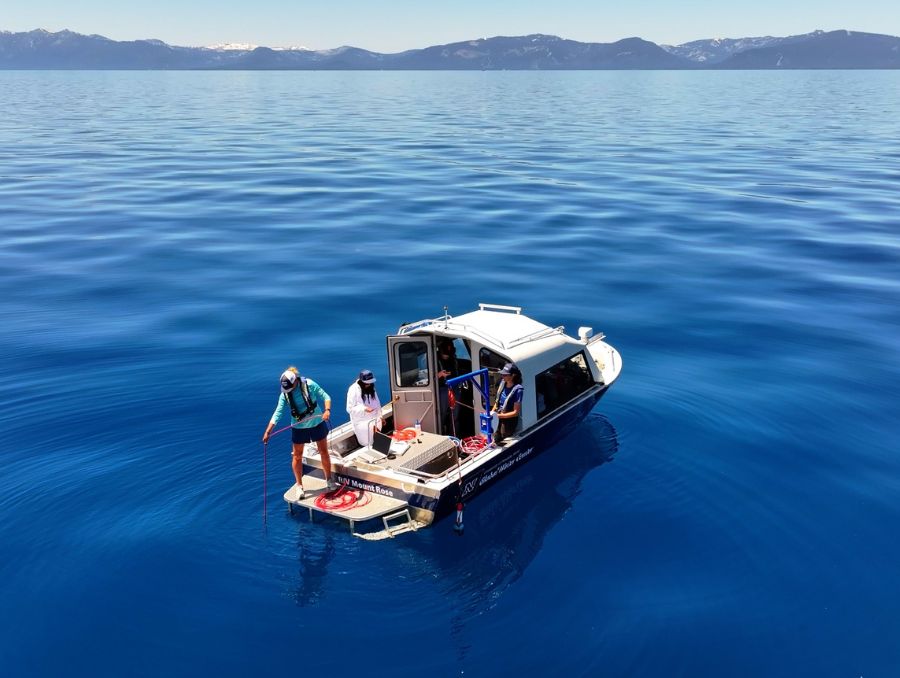Just a stone’s throw from the shore of Lake Tahoe, the University of Nevada, Reno’s 18-acre campus in Incline Village, formerly Sierra Nevada University, has quickly become a vibrant center for students, researchers, alumni and the Tahoe community.
“This campus is the jewel in the crown of our University,” President Brian Sandoval ’86, said at a recent summer event. “There isn’t a location like it in all of higher education.” In addition to the semester at Tahoe program, one-credit weekend classes and current low-residency Master of Fine Arts programs, the University has invested in expanding its programming — and this is just the beginning.
Here are just a few examples of our Lake Tahoe campus’s newest and most exciting initiatives that aim to further the University’s land-grant mission of providing outstanding learning, discovery and engagement programs for the citizens of Nevada, the nation and the world.
Community journalism and local reporting
Local journalism has a new home in Tahoe. This spring, KUNR Public Radio opened a satellite studio on the University’s Lake Tahoe campus. Located in the Prim Library building, the studio enhances regional news coverage by supporting bilingual reporting. It will also serve as the home of the Lake Tahoe News Project, an internship program that gives students hands-on experience covering the region’s pressing issues. KUNR’s Lake Tahoe reporter, Maria Palma ’22 M.A. (journalism), has recently covered topics such as wildfire preparedness, algal blooms and environmental policy at the lake.
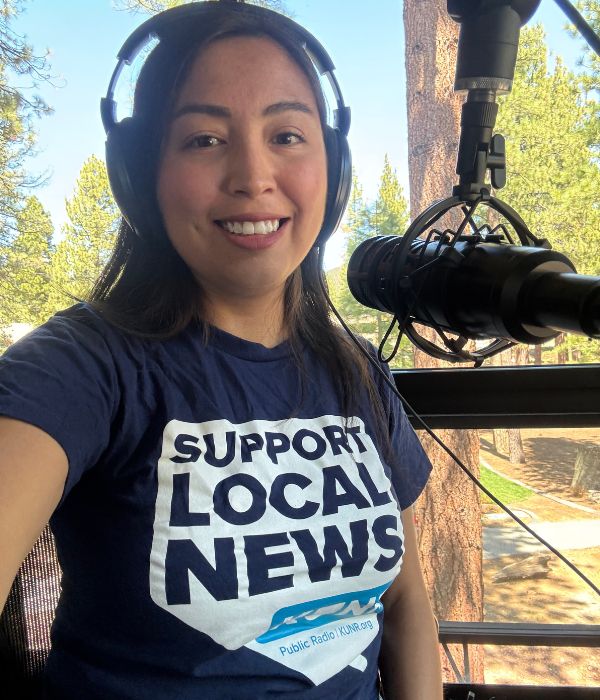
“Thanks to this studio, we’re helping fill a critical news gap in North Lake Tahoe with trusted public service journalism,” said KUNR General Manager Brian Duggan ’08 (journalism). “This studio will also serve as a home base for Reynolds School of Journalism students, who will have opportunities to report on Lake Tahoe as well.”
Keeping it blue + “Monster Fish”
The Tahoe Institute for Global Sustainability led by Sudeep Chandra, foundation professor of biology, is also headquartered at the Lake Tahoe campus. The institute brings together scholars and students to research solutions to the lake’s environmental threats.
At the heart of this work is the Tahoe Environmental Observatory Network (TEON), which combines cutting-edge sensors, long-term data and local knowledge to monitor the health of Lake Tahoe’s watershed in real time.
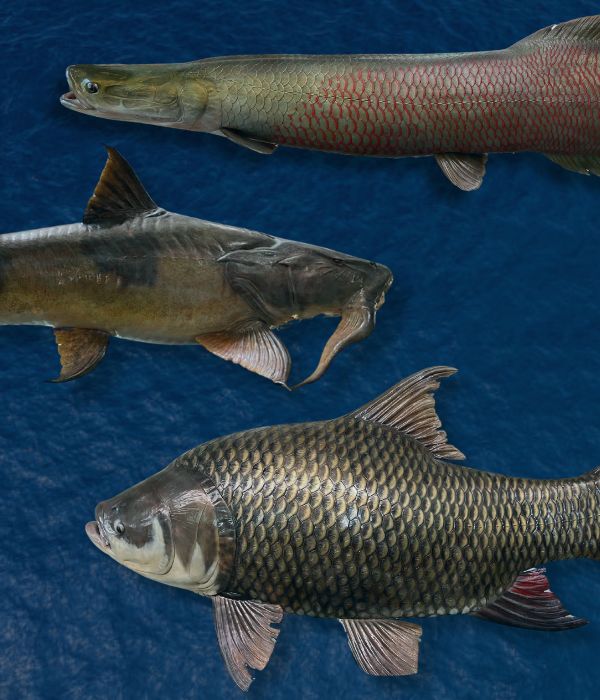
Complementing those efforts is a new freshwater fish exhibition, “Monster Fish.” After an eight-year tour that reached more than one million people, the exhibition — co-created by National Geographic and University aquatic ecologist Zeb Hogan — returns to Nevada in a stunning new setting at the Lake Tahoe campus. The installation features life-size fish sculptures and educational media. “Monster Fish” explores the biology, culture and conservation of the world’s largest and most endangered freshwater fish. The exhibition will be on display through the end of the Spring 2026 semester.
Expanding health education
To address the need for more nurses to better serve the health needs of Incline Village, the Orvis School of Nursing is launching a bachelor of science program focused on rural and community health. The inaugural 16-person cohort will live, work and study on the Lake Tahoe campus starting in the fall of 2026. A teaching health center, developed in partnership with Community Health Alliance, will bring health services to students and local residents.
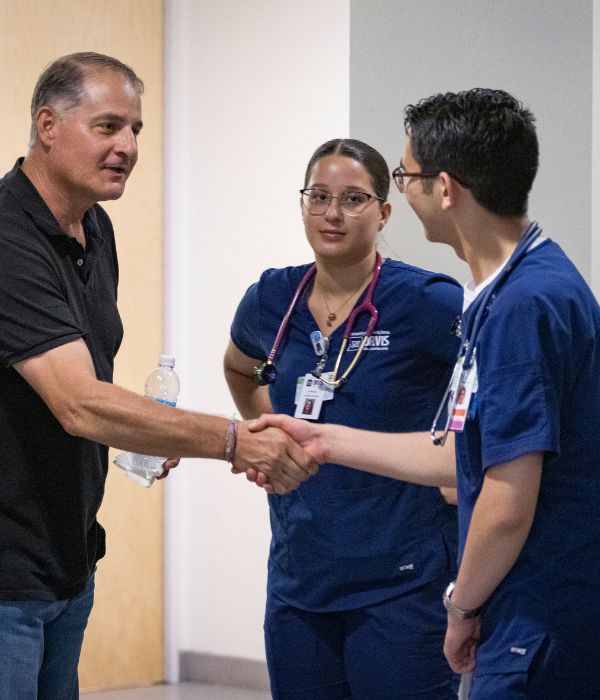
Arts, culture and collaboration
During the summer, visitors stopped by the ground floor of the Prim Library building to experience the Goin Legacy Project, a dynamic archive of Tahoe’s visual history, curated by Peter Goin, foundation professor of art, and a team of undergraduate students. Never-before-seen visuals of the lake, both from the mid-1900s and today, reveal not only how the water has changed, but also our relationship to it.
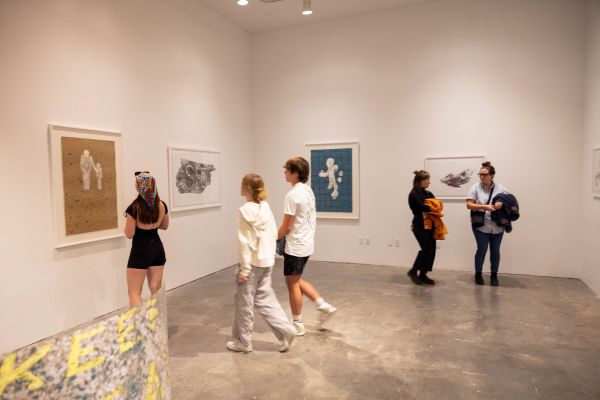
Additionally, this past summer, the University’s School of Music partnered with Classical Tahoe Music Institute to launch Chamber Connections, an immersive residency that allows students to learn alongside world-class musicians during the annual summer concert series.
Empowering Nevada through civic education
Launched in May by the College of Liberal Arts, a new initiative has been established: the Center for Constitutional Law. The Center will serve as a hub for research on the U.S. Constitution’s influence on contemporary society, offering teacher training, community service programs and lectures on constitutional law.
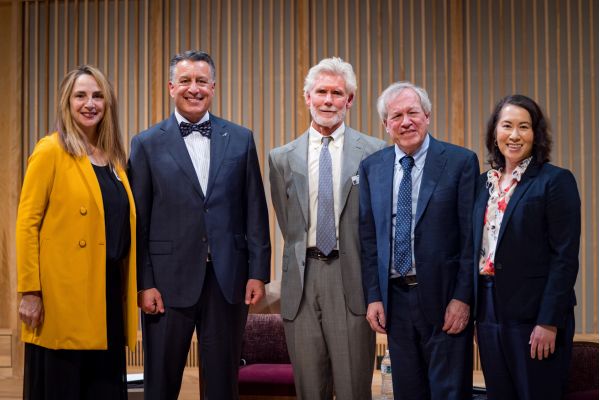
In collaboration with the William S. Boyd School of Law at the University of Nevada, Las Vegas, and under the direction of Rick Trachok ’74 (plant science), the Center will play a pivotal role in shaping Nevada’s legal and civic future.
“I’m so pleased to see this Center taking shape under Rick Trachok’s leadership and vision,” said Dean Casilde Isabelli. “With the new legal studies minor now in place, it has the potential to become a powerful and transformative resource, not just for the University, but for civic engagement across Nevada.”
As part of this initiative, the Center hosts the “We the People Summer Institute” at the Lake Tahoe campus in collaboration with the Nevada Center for Civic Engagement. The institute is designed to bring together Nevada middle and high school history, social studies and American government teachers to collaborate on curriculum development and deepen their understanding of the Constitution. In summer 2026, this collaboration will expand significantly by offering up to three one-week residential programs, coinciding with the 250th anniversary of the Signing of the Declaration of Independence.
A model for the future
From environmental science and civic education to journalism, the University of Nevada, Reno at Lake Tahoe is redefining what’s possible in higher education and is inviting the world to take part. “We’re using this beautiful place to benefit students, the local community and the global environment,” said Executive Vice President and Provost Jeff Thompson.
“It’s about delivering education in new ways that have real impact.
